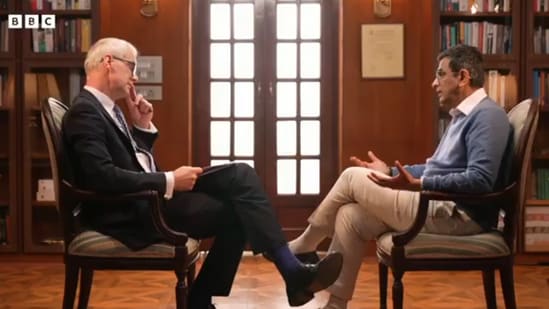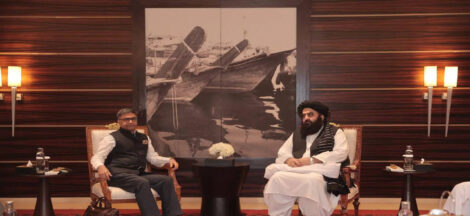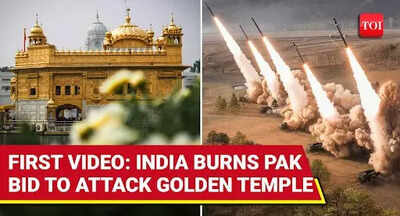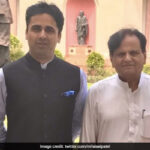Former Chief Justice of India, D.Y. Chandrachud, has articulated that Article 370 was designed as a temporary provision destined to phase out and emphasized that personal faith does not impede judicial independence. In a comprehensive interview with the BBC’s HARDtalk programme, Chandrachud addressed pivotal judgments and controversies from his tenure.
Discussing the Supreme Court’s decision to uphold the abrogation of Article 370, Chandrachud highlighted that the provision was part of a constitutional chapter titled “Temporary and Transitional Provisions.” He stated, “At the birth of the Constitution, the assumption was this, what was transitional will have to fade away and have to merge with the overall text of the Constitution.” He further noted that the Supreme Court had set a timeline for restoring the democratic process in Jammu and Kashmir, leading to elections in October 2024. Chandrachud remarked that the presence of a local dispensation different from the Union government is evidence that “democracy has succeeded in Jammu and Kashmir.”
Addressing concerns about the reorganization of Jammu and Kashmir into two Union territories, Chandrachud mentioned that the court had accepted an “unconditional” undertaking from the Union government to restore Jammu and Kashmir’s statehood “as soon as possible.”
On the topic of judicial independence and personal faith, Chandrachud responded to discussions about his statement regarding praying before delivering the Ayodhya verdict. He clarified, “I make no bones of the fact that I am a man of faith. Our Constitution does not require you to be an atheist to be an independent judge, and I value my faith.” He emphasized that his faith teaches him the universality of religion and the importance of dispensing equal and even-handed justice.
Chandrachud also addressed a viral video showing Prime Minister Narendra Modi visiting his residence during Ganpati Poojan. He dismissed concerns about potential bias, stating that such interactions are “elementary courtesies of Constitutional office” and do not influence judicial decisions. He highlighted instances where the Supreme Court invalidated laws brought by the government, underscoring the judiciary’s independence.
Reflecting on his tenure, Chandrachud discussed the challenges and responsibilities of the judiciary in maintaining a balance between personal beliefs and constitutional duties. He reiterated that personal faith does not compromise a judge’s ability to deliver impartial justice, emphasizing that the Constitution does not mandate atheism for judicial independence.
Chandrachud’s remarks provide insight into the judiciary’s perspective on significant constitutional changes and the interplay between personal beliefs and professional responsibilities. His defense of the Supreme Court’s decisions and his clarification on the role of personal faith in judicial proceedings contribute to ongoing discussions about the independence and impartiality of India’s judiciary.
In his interview, Chandrachud also touched upon the importance of meditation and prayer in maintaining judicial calmness and fairness. He shared that his time in prayer and meditation is “important” to him and teaches him to be “even-handed to every religious group in the country.”
Chandrachud’s tenure as Chief Justice witnessed several landmark judgments and significant developments in India’s legal landscape. His recent statements shed light on the judiciary’s approach to constitutional interpretation and the personal philosophies that guide judicial conduct.
As discussions continue about the role of personal beliefs in judicial decision-making, Chandrachud’s perspectives offer a nuanced understanding of how faith and professional responsibilities can coexist within the framework of India’s Constitution.
The former Chief Justice’s insights contribute to broader conversations about the separation of powers, the role of the judiciary, and the principles that underpin India’s democratic institutions.
Chandrachud’s reflections underscore the complexities inherent in judicial roles and the careful balance required to uphold constitutional values while acknowledging personal beliefs.
His statements serve as a reminder of the judiciary’s commitment to impartiality and the ongoing efforts to maintain public trust in legal institutions.
Chandrachud’s interview provides a window into the considerations and philosophies that inform judicial decision-making at the highest levels, offering valuable insights into the functioning of India’s Supreme Court.
As India continues to navigate complex legal and constitutional issues, the perspectives of former Chief Justices like Chandrachud play a crucial role in shaping public understanding and discourse around the judiciary’s role in a democratic society.
Chandrachud’s emphasis on the temporary nature of Article 370 and his defense of personal faith in judicial roles contribute to ongoing debates about constitutional interpretation and the principles of secularism and independence in India’s legal system.
His remarks highlight the dynamic interplay between tradition and modernity in India’s constitutional framework and the judiciary’s role in mediating this balance.
Chandrachud’s perspectives offer a lens through which to examine the evolving nature of India’s democracy and the foundational principles that guide its legal institutions.
As the nation reflects on these issues, the insights of judicial leaders like Chandrachud provide valuable guidance on the path forward for India’s constitutional democracy.
Chandrachud’s interview serves as a significant contribution to the discourse on judicial independence, constitutional interpretation, and the role of personal belief systems within the judiciary.
His reflections underscore the importance of maintaining a judiciary that is both independent and reflective of the diverse beliefs and values that constitute India’s social fabric.
Chandrachud’s tenure and his recent statements continue to influence discussions on the balance between personal faith and professional duties within India’s legal system.
His perspectives provide a framework for understanding how judges can navigate personal beliefs while upholding the impartiality and integrity required by their constitutional roles.
Chandrachud’s insights contribute to a deeper appreciation of the principles that underpin India’s judiciary and the ongoing efforts to uphold justice in a complex and diverse society.
As India moves forward, the reflections of leaders like Chandrachud will remain integral to shaping the nation’s legal and constitutional discourse.




 Faisal Patel snaps Cong links, cites neglect
Faisal Patel snaps Cong links, cites neglect 